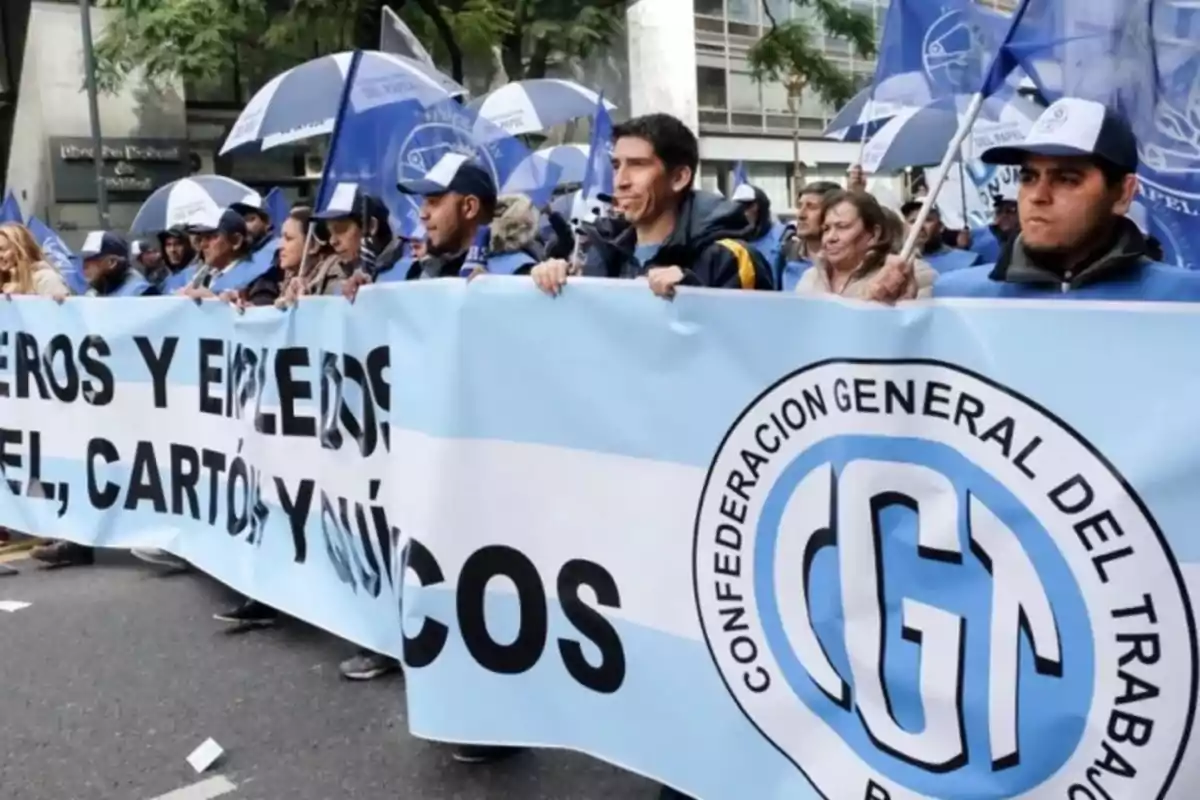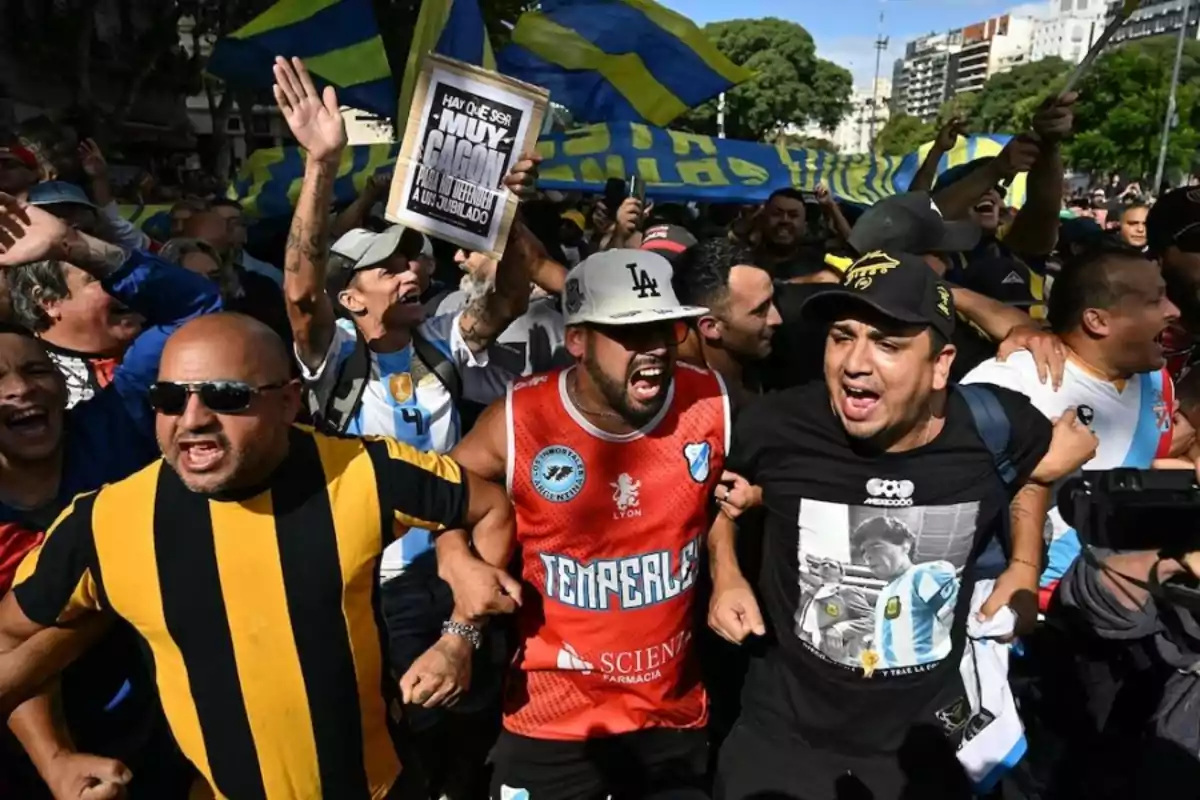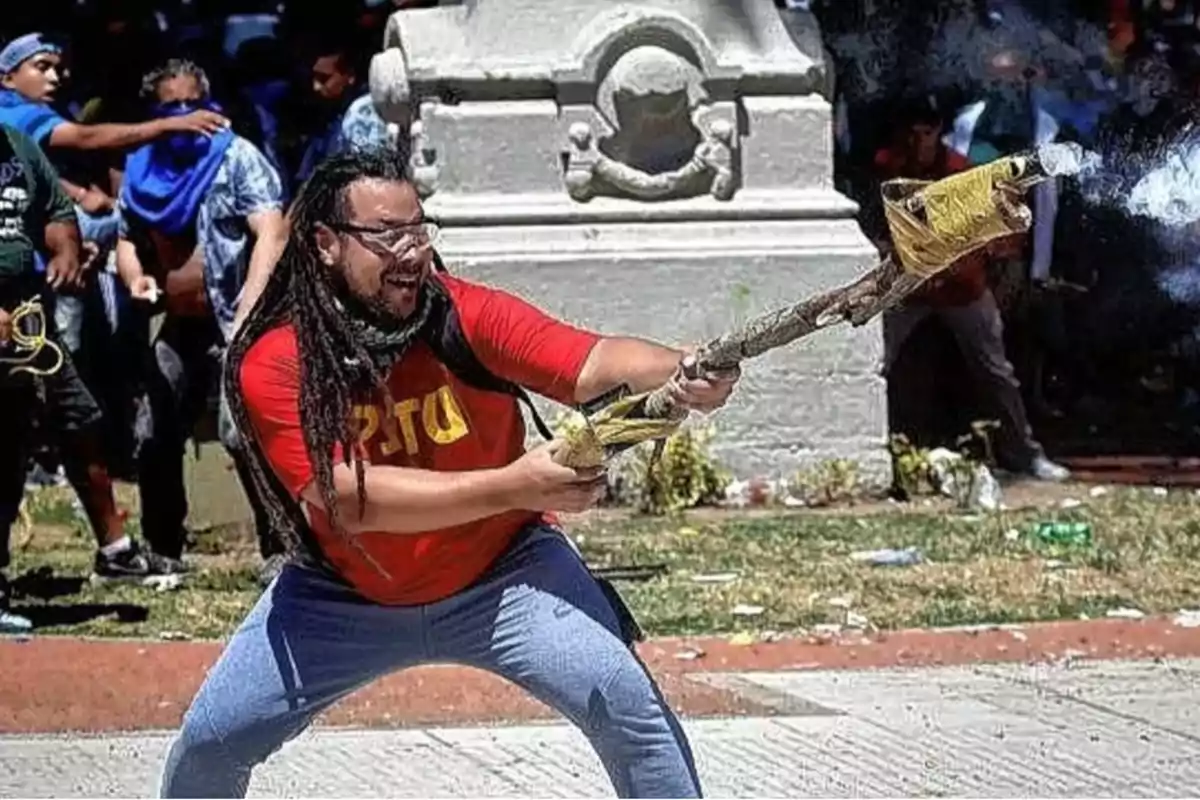
CGT backtracks and will limit its August 7 protest
The labor union will shorten its route during the August 7 march, adapting to anti-blockade protocols
The General Confederation of Labor (CGT) confirmed that it will limit its participation in the mobilization on the upcoming August 7, called under the slogan "Peace, Bread, Land, Housing, and Work".
Although the protest will still start at the Church of San Cayetano in Liniers, the labor union decided that its main column will not complete the entire routeand will gather directly one block from Plaza de Mayo, at the intersection of Diagonal Sur and Perú.
The decision, according to union leaders, is due to concerns about possible incidents along the route and the new security conditions imposed by the national government, which prevent them from blocking streets without consequences.

"At one point, there was a plan to march from San Cayetano, but we decided to gather downtown to protect our people from any provocation", explained aleader of the CGT leadership. In the same vein, he added that the decision was made considering that "there are some marginal groups like the left that always seek to create conflicts or some political infiltrator who wants to cause chaos".
The internal analysis of CGT not only considered the possibility of clashes with radicalized groups, but also the consequences of violating the anti-picketing protocol in effect since the end of 2023.
This set of measures, implemented by the Ministry of Security, establishes that streets and highways can't be blocked, requires that demonstrations leave at least one lane open for traffic, and authorizes the intervention of federal forces in situations that obstruct traffic. In addition, it provides for criminal and financial penalties against the organizing groups for logistics expenses, a factor that, according to union sources, weighed in the decision to shorten the route.
Even so, several major unions within CGT confirmed that they will send delegations to the Church in Liniers to participate in the full route, including Camioneros, UOCRA, UPCN, UDA, and the Glass Workers' Union.

Meanwhile, the rest of the organizers will maintain the original mobilization, which will start at 8 a.m. from San Cayetano and pass through Plaza Miserere and Congress before reaching Plaza de Mayo. Among these are the two CTAs, the Union of Workers of the Popular Economy (UTEP), the Argentine Confederation of Transport Workers (CATT), social movements, retirees, and students, grouped in the Trade Union Front for Sovereignty, Decent Work, and Fair Wages.
The march, which has taken place since 2016 in commemoration of San Cayetano, this year takes on a more oppositional profile with the inclusion of CGT and other union sectors. Nevertheless, the union seeks to maintain a balance: to express its dissatisfaction with the government without abandoning the channels of dialogue in the Council of May, where reforms related to the labor market are discussed.
In line with this strategy, the organizers agreed to avoid any direct display of confrontation. In Plaza de Mayo there will be no stage or speakers; the event will be limited to the reading of a consensus document, in a gesture that reflects both the tense atmosphere and the caution with which CGT approaches its participation.
CGT's decision to shorten its route reveals that the August 7 mobilization has a completely political component rather than a genuine demand.
More posts: